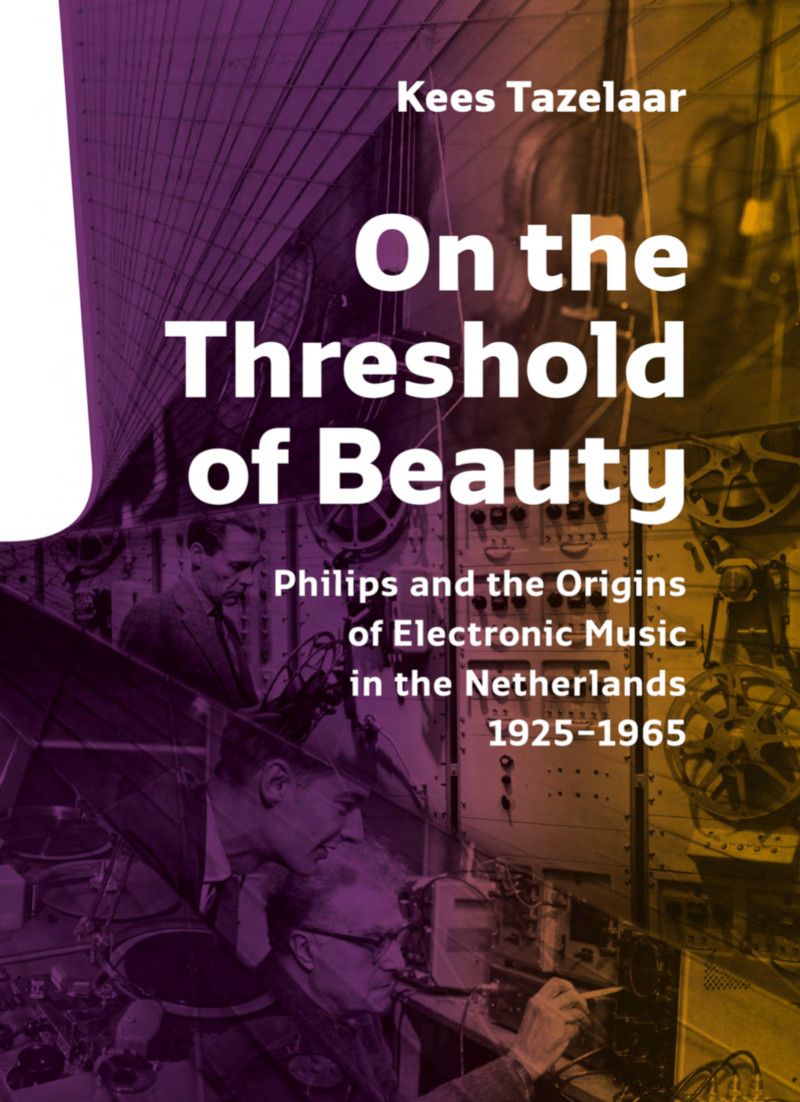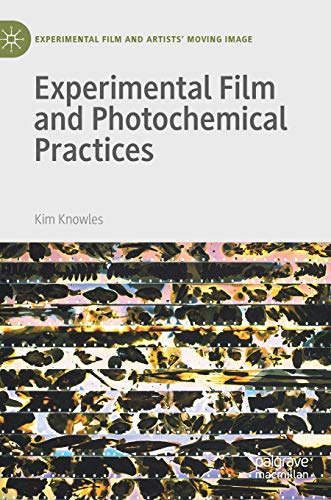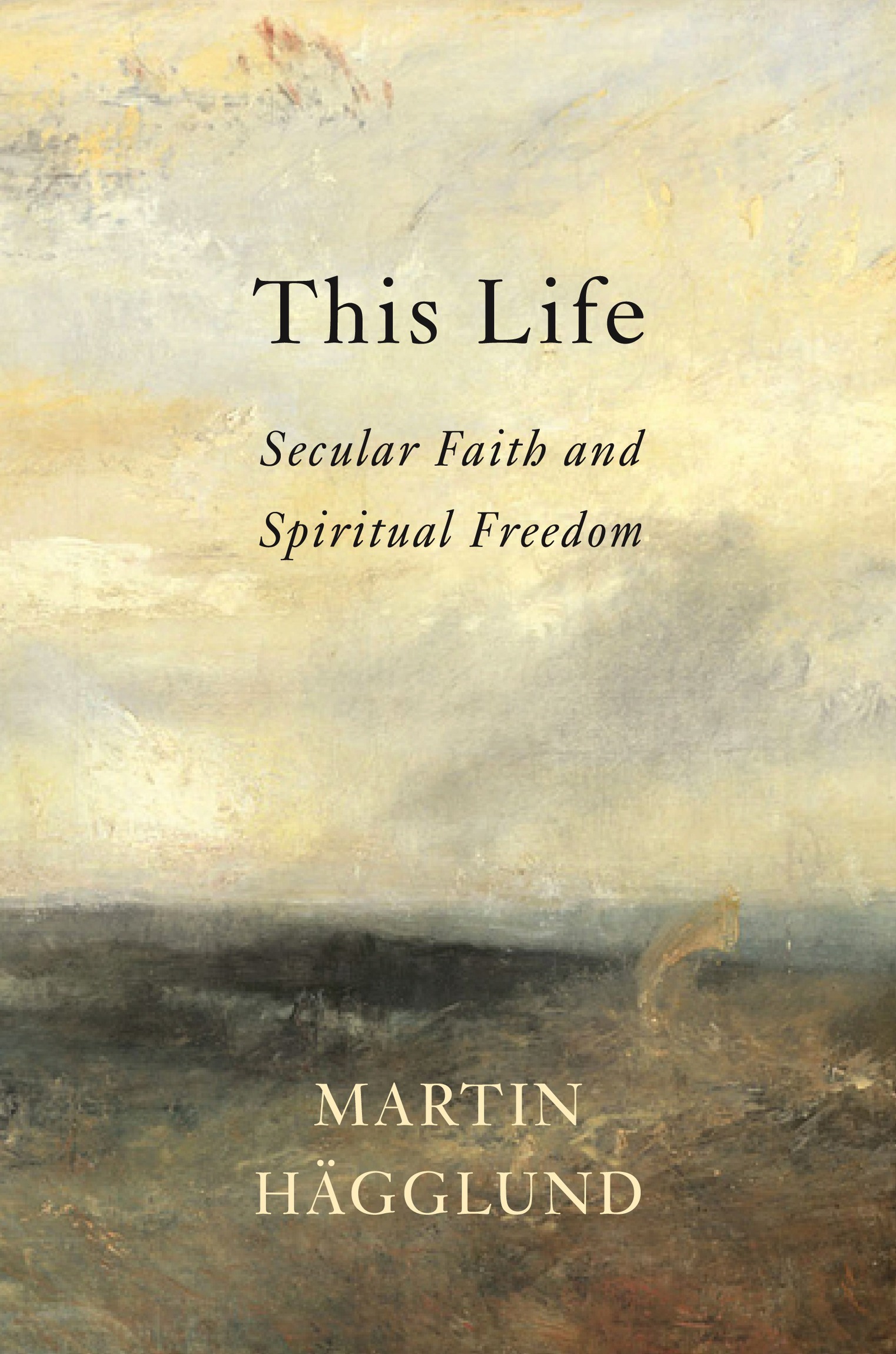Kees Tazelaar: On the Threshold of Beauty: Philips and the Origins of Electronic Music in the Netherlands, 1925-1965 (2013–)
Filed under book | Tags: · composition, electroacoustic music, electronic music, music, music history, musique concrète, netherlands, serialism

“The first studio for electronic music in the Netherlands was not a radio studio — as in so many other countries — it was located at the research laboratory of Philips (also known at NatLab). From 1930 it had been part of the electro-acoustic research program which combined technical, economic, sociologic and musical aspects. The first compositions realized in the Philips studio were thus test-cases. Parallel to this research, other departments of Philips, purely focused at marketing, developed plans for the Philips Pavilion at the World Expo of 1958 at Brussels. Philips planned a demonstration for the general public of the possibilities of sound and light, but through the engagement of Le Corbusier, Iannis Xenakis and Edgar Varèse this project took a strong turn towards the avant-garde. The result, now considered a milestone in the history of electronic music, was in many ways more experimental than the music produced at the Philips research laboratory.
The story of electronic music at the Philips research laboratory and the Philips Pavilion are the first two main strands of the book On the Threshold of Beauty, in which Kees Tazelaar for the first time unravels the course of events, and debunks some of the myths around the Philips Pavilion. A third historical strand concerns the needs of composers, who desired to learn how to compose in the new medium. In 1957 Walter Maas and the CEM set up an electronic studio at the Technical University of Delft for this purpose, which fused with the Philips studio in 1960, and afterwards moved to the University of Utrecht. Tazelaar writes about the works realized at this studio (STEM), as well as about the activities of the ground-breaking German composer Gottfried Michael Koenig who comes to the Netherlands in 1961 and in 1964 takes over the direction of STEM.”
Publisher V2_, Rotterdam, 2013
Revised digital edition, 2020
Open access
ISBN 9789462080652, 9462080658
314 pages
HT Raviv
Reviews: René van Peer (Eindhovens Dagblad, NL, 2013), Hubert Steins (MusikTexte, 2014, DE), Maarten Brandt (OpusKlassiek, NL, 2014), Aurelio Cianciotta (Neural, 2014), Gregory Taylor (Cycling74, 2015).
Book website
Publisher
Publisher (digital edition)
WorldCat
Kim Knowles: Experimental Film and Photochemical Practices (2020)
Filed under book | Tags: · body, colour, expanded cinema, experimental film, film, film sound, installation, materialist film

“This book assesses the contemporary status of photochemical film practice against a backdrop of technological transition and obsolescence. It argues for the continued relevance of material engagement for opening up alternative ways of seeing and sensing the world. Questioning narratives of replacement and notions of fetishism and nostalgia, the book sketches out the contours of a photochemical renaissance driven by collective passion, creative resistance and artistic reinvention. Celluloid processes continue to play a key role in the evolution of experimental film aesthetics and this book takes a personal journey into the work of several key contemporary film artists. It provides fresh insight into the communities and infrastructures that sustain this vibrant field and mobilises a wide range of theoretical perspectives drawn from media archaeology, new materialism, ecocriticism and social ecology. ”
Publisher Palgrave Macmillan, 2020
ISBN 3030443094, 9783030443092
xv+255 pages
PDF (removed on 2020-11-5 upon request from author)
Comment (0)Martin Hägglund: This Life: Secular Faith and Spiritual Freedom (2019)
Filed under book | Tags: · capitalism, critique, democracy, democratic socialism, faith, freedom, god, labour, liberalism, life, love, marxism, philosophy, politics, production, religion, secularism, socialism, society, spirituality, theory of value, time, value

“This Life offers a profoundly inspiring basis for transforming our lives, demonstrating that our commitment to freedom and democracy should lead us beyond both religion and capitalism. Philosopher Martin Hägglund argues that we need to cultivate not a religious faith in eternity but a secular faith devoted to our finite life together. He shows that all spiritual questions of freedom are inseparable from economic and material conditions: what matters is how we treat one another in this life and what we do with our time.
Engaging with great philosophers from Aristotle to Hegel and Marx, literary writers from Dante to Proust and Knausgaard, political economists from Mill to Keynes and Hayek, and religious thinkers from Augustine to Kierkegaard and Martin Luther King, Jr., Hägglund points the way to an emancipated life.”
Publisher Pantheon Books, New York, 2019
ISBN 9781101870402, 1101870400
450 pages
Interviews with author: Meagan Day (Jacobin, 2019), Adam Kelly (University of York, 2019, video).
Debates: Frederick Neuhouser, Lea Ypi, Jensen Suther (The Philosopher, 2019, with Hägglund’s introductory essay), Brandon M. Terry, Walter Benn Michaels, Benjamin Kunkel, Michael W. Clune, Jodi Dean, William Clare Roberts (Los Angeles Review of Books, 2020, with Hägglund’s response), Robert Pippin (The Point, 2019, Hägglund’s response).
Reviews: Samuel Moyn (Jacobin, 2019), Michael A. McCarthy (Jacobin, 2019), Nathan Brown (Radical Philosophy, 2019), Tyler M. Williams (Critical Inquiry, 2020), Jedediah Britton-Purdy (The New Republic, 2019), Mathew Abbott (Marx & Philosophy, 2020), Martin Rayburn (Parrhesia, 2020), Conall Cash (boundary2, 2019), Oliver Burkeman (The Guardian, 2019), James Wood (New Yorker, 2019), Adam Kirsch (Wall Street Journal, 2019), Matt McManus (Areo, 2020), Daniel Steinmetz-Jenkins and Daniel Zamora (Dissent, 2019), William Egginton (Believer, 2020), Anton Jansson (Ord & Bild, 2020, SW), Matthew Engelke (Public Books, 2019), Kevin Schilbrack (Sophia, 2020), Knox Peden (Sydney Review of Books, 2020), Johan Andreas Trovik (Vinduet, 2022, NO).
Author
Wikipedia
Publisher
WorldCat

